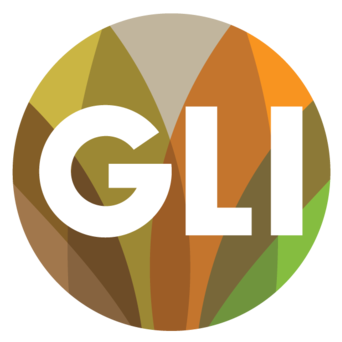Name: Philip Agaba
Occupation: Administrator at Rugarama Hospital
A little intro about Philip
I sat down with Philip at Entusi on Lake Bunyonyi to learn more about his work with GLI and his views on the health care system in Uganda. As we overlooked the serene lake, Philip told me about his wife Darleen and three children. Philip lives in Kabale Municipality, Kabale District. He is a medical social worker who found his passion for public health and never looked back!
““As an administrator, I am responsible for operations, oversight, human resources, recruitment, processes, and partnerships, budgeting...””
What is your educational background?
I first got a diploma in Clinical Medicine and worked for four years before going into social administration. I really wanted to see how to get involved in social activities, that were not just health care based. Also, I have a diploma in HIV community health and a social administration degree. I am now doing a master's in Public Health.
What research are you doing now?
I am now doing my research in cost analysis health care which is largely focused on what it costs to have healthcare services. This way we can plan the best way to provide healthcare services with minimal resources and efficiency! Most healthcare policies and plans were made years ago, and they are struggling to keep up with the changing world. The [Ugandan] government has healthcare facilities, but even what the government offers is not always sufficient because it still has a lot of facility-based services. The issue with this is they do not engage village healthcare teams who have been trained to reach and support their communities. Health care is expensive, and infrastructure 1S lacking, specifically for specialized cases.
How do you work with GLI?
Hospitals have a wide range of activities including inpatient and outpatient services. Rugarama Hospital supports a nursing care for common conditions and general medical care for children and adults. However, there is a lack of community engagement as far as Non-Communicable Diseases (NCDs) are concerned. GLI came in with a program that involves the active engagement of communities, particularly newly diagnosed cases of Hypertension and Diabetes (NCDs). GLI recruits Community Health Workers (CHW) who take time to interact with patients who have been newly diagnosed with either Hypertension (high blood pressure) or Diabetes. "They enroll them, interact with them, and teach them beyond what the hospital is able to do. Usually, the hospital diagnoses, treats, and then waits for the patient to come back, but the CHW supported by GLI go out to the community. They follow up with telephone e-calls, they reach these people with home visits to check their health data, how their daily activities are run, and they get to know if they have any challenges that could link them to NCDS which they can help them to overcome from the places that they work, places that they live." GLI also helps with funds that enable the administration to run activities that support the NCD clinic at the hospital. specifically work as a liaison between GLI and the hospital, keeping both ends of the program.
What is your favorite part of GLIs programming?
"It is common for people to have ideas and they seem to be bright, but they don't move. They don't set off. Or even if they make an effort it stops at some point. But this partnership with GLI seems to be lasting, it hasn't stopped at any point, it hasn't had any bottlenecks SO the clients who have seen this program run who have been getting services from Rugarama Hospital have seen uninterrupted services".
What do you hope for the future of your community?
First, I want the communities to be empowered to make the right decisions about their health. They should be able to spend less so they can use the money they would've put towards health care for other activities that support the community. Second, it is time for our government and donors to not have to strain as much to support public health. I want my community to realize that they should be responsible for their own health and that is why these programs are sO vitally important.
Closing statement
As I closed out my talk with Philip, I was struck with one final comment. "'Health is for us, health is for every person, it is not that the government should be responsible for my health ... it is my responsibility". With the help of Philip and other passionate workers, we can strive to make people act over their own health and live better lives because of it.
Written by: Parker Murane
GLI Public Health Communications Intern


